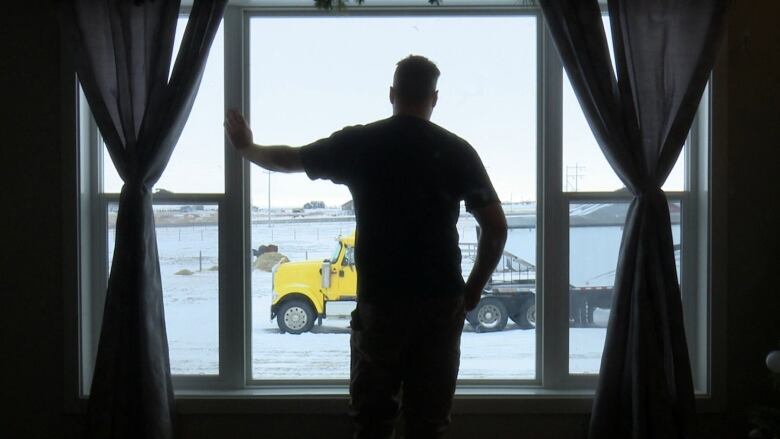Mental health group warns of 'echo pandemic' among traumatized health workers, vulnerable Canadians
Canadian Mental Health Association calls for investment to cope with spike in demand for supports

A leading mental health advocacy organization is calling for more federal resources to cope with the threat of an "echo pandemic" afflicting front-line health care workers and other Canadians traumatized by COVID-19.
Margaret Eaton, CEO of the Canadian Mental Health Association (CMHA), said Canada alreadywas failing to deliver adequatemental health services before the novelcoronavirus struck, and warned that officials must act now to prepare for an expected surge in demand.
"We won't know the full picture for some time but given the global reach of COVID-19, our experience tells us the mental health impacts will be significant," she said.
Eaton, who is appearing as a witness before the House of Commons health committee on Wednesday, said the pandemic has already driven a rise in demand for mental health supports.
The CMHA branch in Nova Scotia, for example, normally takes in 25 calls for support a day. That has jumped to more than 700 calls a day, Eaton said.
"They're worried about contracting or spreading COVID-19. They're worried about their family and friends who might already be ill. And they're worried about losing their jobs and ability to make ends meet," shesaid.
Earlier in the day, Health Minister Patty Hajduannounced the launch of a new online resource called Wellness Together Canada to help people who are struggling with fearand loneliness, and who areunable to lean on their regular support networks.
"Whether it is anxiety, sadness or substance use,there is something there for you," Hajdu said. "The options include an online peer community to talk and share and support others. There are also a number of self-help resources to help with anxiety, stress or other issues and there are options such as texting, calling or connecting by video for a session with a professional to address a specific need."
Eaton said people with serious mental illnesses and addictions are particularly vulnerable at a time whenmany are worried about housing and physical distancing in environments where infection control is "challenging, if not impossible." Many of the services and treatments that help those vulnerable people have been suspended, elevating their risk of infection, loneliness and relapse, she added.
Eaton said Indigenous people are likely the most vulnerableand many community members are already experiencing serious mental health issues and high youth suicide rates.
Front-line workers feeling fear, anger
With their limited access to social networks and technology, seniors also face increased risks of mental distress due tothe pandemic, she said.
Eaton said health-care workers and others on the front lines of the pandemic are dealing with degrees of fear and anger that are having negative effects on their mental health.
She said reports show many people inChina, Italy and the U.S. who treated COVID-19 patients are now suffering from depression, anxiety, insomnia and distress.
In Italy, at least two nurses on the front lines of COVID-19 have reportedly died by suicide, she said.
Dr. Joanne Liu, a physician and former international president of Doctors Without Borders, said the shortage of personal protective equipment (PPE) is worsening the stress for front-line workers.
"This is nerve-racking. I do understand that we have to usecarefully our PPE, but if you want us to care for patients, I'm begging you to care for us, to protect us," she told the health committee.
Liusaid there should be more psychological counselling for health workers, as well as ethical guidance for those who have to make difficult decisions on patient care.
Eaton called for a significant investment to ramp up programs to help deal with an anticipated spike in demand for mental health care supports due to COVID-19.
"With rapid government investment, we can immediately scale and ensure these proven programs have nationwide reach. A targeted investment for chapters located in less populated areas and rural and remote communities will help them scale at the same pace," she said.
Watch: Margaret Eatonof theCMHAwarns of the pandemic's lasting effects on mental health














_(720p).jpg)


 OFFICIAL HD MUSIC VIDEO.jpg)
.jpg)



























































































